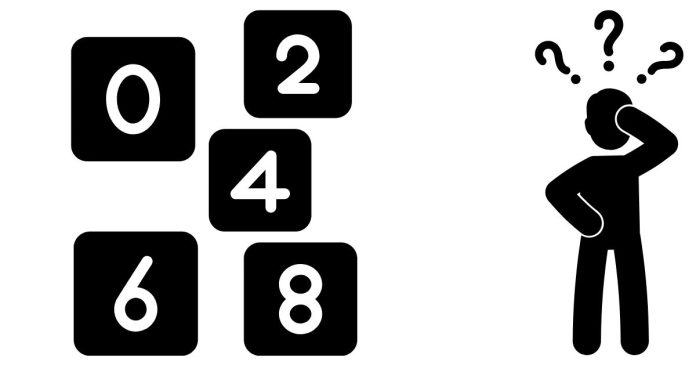Mathematically, 0 is unquestionably an even number. It meets all the criteria of evenness, and there’s no debate in mathematics about its classification. However, for some people, the idea of 0 as an even number can feel unintuitive or spark confusion. This ambiguity often stems from a mix of conceptual misunderstandings, gaps in mathematical knowledge, and the peculiar nature of the number 0 itself.
Let’s dive into the reasons why some people might question whether 0 is even and clarify once and for all why it is.
What Makes a Number Even?
A number is classified as even if:
- It is divisible by 2 without leaving a remainder, i.e., .
- It can be expressed as 2k, where k is an integer.
Using these definitions:
- Divisibility by 2: 0 divided by 2 equals 0, with no remainder (0 mod 2=0).
- Expressed as 2k: If k=0, then 2k = 2 × 0 = 0.
By both definitions, 0 fits perfectly as an even number.
Why Do Some People Doubt That 0 Is Even?
Despite the clear mathematical definitions, several factors contribute to the confusion:
1. The Special Nature of 0
Zero is a unique number that doesn’t fit neatly into everyday intuition about numbers. People often think of even numbers as part of a pattern, like 2, 4, 6, 8, etc. Since 0 is not explicitly mentioned in this sequence, it can feel like an outlier.
However, 0 is the starting point of the sequence of even numbers: 0,2,4,6,8,… Its absence from common examples doesn’t negate its evenness.
2. Misinterpretation of “Nothingness”
Some people think of 0 as “nothing” rather than a number with properties. This misunderstanding can lead to the assumption that 0 doesn’t behave like other numbers, including following the rules of evenness.
However, mathematically, 0 is a fully defined number with specific properties. Just like 2 or 4, it is divisible by 2 without a remainder.
3. Lack of Exposure to Formal Definitions
In early mathematics education, students are often taught that even numbers are those ending in 0, 2, 4, 6, or 8, but this is usually applied to positive numbers. Without explicit examples or explanations, 0 is sometimes left out of the conversation, leading to uncertainty about its classification.
For those unfamiliar with more formal definitions of even numbers, this gap can make 0 seem ambiguous.
4. “Is 0 Odd?”
Some might mistakenly believe that 0 could be odd instead of even. However:
- Odd numbers are those that cannot be divided by 2 evenly and leave a remainder of 1.
- 0 divided by 2 leaves no remainder, so it does not qualify as odd.
The dichotomy of even vs. odd means that every integer is either even or odd. Since 0 is not odd, it must be even.
5. Conceptual Bias Toward Positive Numbers
When people think of numbers, they often think in terms of positive integers. The idea of even and odd numbers is usually introduced with small, positive values, like 1, 2, 3, 4, etc. This focus can unintentionally bias people against including 0 in their mental framework of evenness.
In reality, the rules for even and odd numbers apply universally to all integers, including negative numbers and 0.
Why Does It Matter?
Understanding that 0 is even isn’t just a matter of trivia—it has practical implications in math and computer science. For instance:
- Programming and Algorithms: Many algorithms use the even/odd distinction for logic (e.g., dividing data into groups). Misclassifying 0 as neither even nor odd can lead to bugs or unexpected behavior.
- Mathematical Consistency: Recognizing 0 as even helps maintain the integrity of mathematical principles. For example, the sum of two even numbers is always even. If 0 weren’t even, this rule would break when adding 0 to another even number.
There is no ambiguity in mathematics: 0 is, without a doubt, an even number. The confusion surrounding it often stems from intuition, miscommunication, or a lack of exposure to formal definitions. By embracing the properties of 0, we can appreciate its place in the numerical system and avoid unnecessary doubts.
Next time someone asks whether 0 is even, you’ll not only have the answer, but also the reasoning to back it up!


